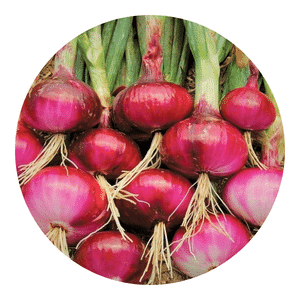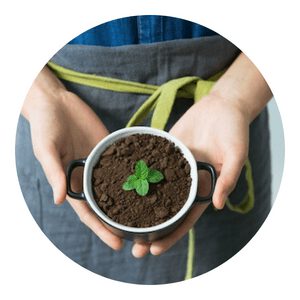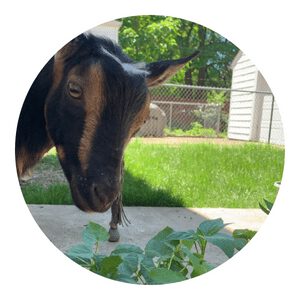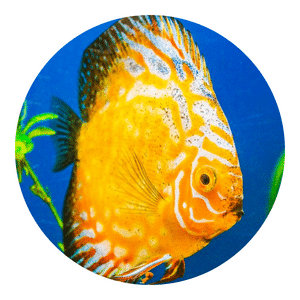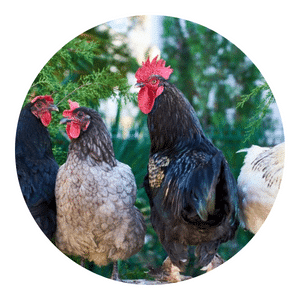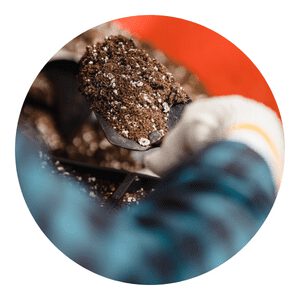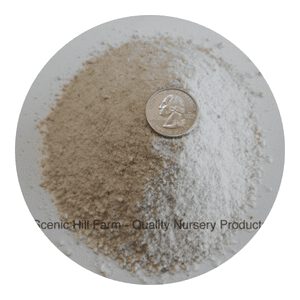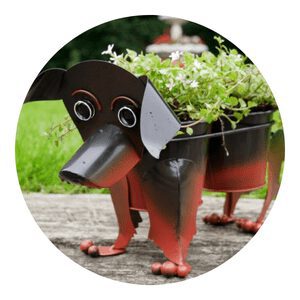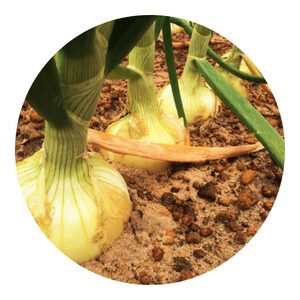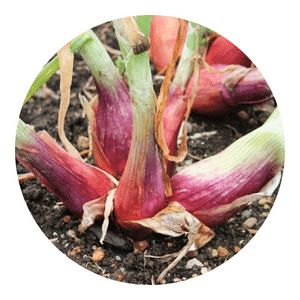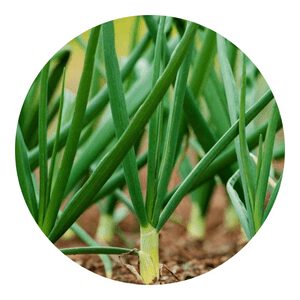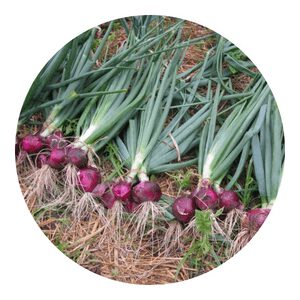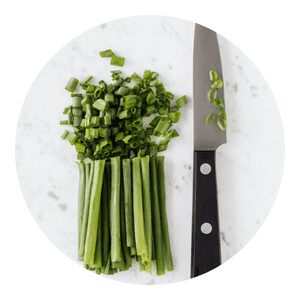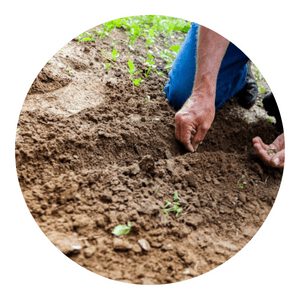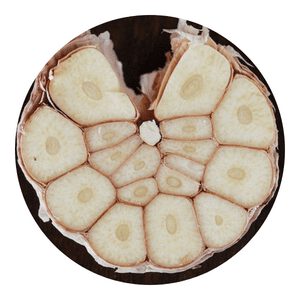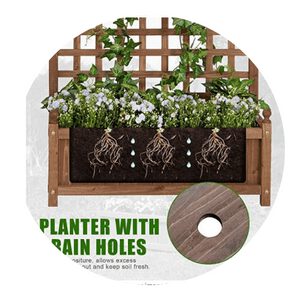How to Grow Organic Onions
Organic onions are a healthy and environmentally friendly option for your home garden.
They are easy to grow and require very little maintenance.
With a little planning, you can have a thriving crop of organic onions to enjoy all season long!
Onion Menu
choosing the right variety:
There are many different types of onions available, so choose the one that best suits your needs.
Onions are a staple in many kitchens. They are used in both savory and sweet dishes.
There are many different types of onions available, so choose the one that is best suited for your needs.
The most common type of onion is the yellow onion. It is large and has a strong flavor. Yellow onions are good for cooking because they become sweeter when they are cooked.
Red onions are also popular. They have a mild flavor and a slight sweetness. Red onions are good for salads and other raw dishes.
White onions have a strong flavor and are best used for cooking. They are not as sweet as yellow onions, so they are good for dishes with a stronger flavor.
Green onions have a milder flavor than other types of onions. They are good for adding to salads or other raw dishes.
planting
Onions can be planted either from seed or bulbs.
Onions can be planted either from seed or bulbs. If you are planting from seed, you will need to wait until the soil warms up to at least 50 degrees F. before planting.
Sow the seeds in rows, and then thin them to 4 inches apart.
Onion bulbs can be planted any time of year, but fall is the best time to plant them so they have plenty of time to grow before the cold weather arrives.
Plant the bulbs 2-3 inches deep, and space them 8-10 inches apart.
care and maintenance: Onions need regular watering and weeding to thrive.
harvesting
When onions have reached the desired size, they can be harvested.
Onions are a cool weather crop that can be planted in the early spring as soon as the soil can be worked. Onion plants will grow best when the temperature is between 60 and 80 degrees Fahrenheit.
The bulbs will begin to form about two to three weeks after planting. When onions have reached the desired size, they can be harvested.
To harvest onions, gently pull them from the ground by their leaves.
storing
Onions can be stored fresh for several months if properly cared for.
Onions are a great way to add flavor to dishes, and they are also a healthy vegetable. Onions can be stored fresh for several months if properly cared for.
The key is to store them in a cool, dark place where they will not be exposed to light or moisture.
How long do onions take to grow?
Onions are one of the oldest cultivated vegetables, and they’re also one of the easiest to grow.
You can grow onions from seed, sets, or transplants. Onions take between 60 and 120 days to mature, depending on the type you’re growing.
To get a jump-start on the season, start your onions indoors about four weeks before your last frost date. Sow onion seeds ¼ inch deep in flats or pots filled with seed-starting mix.
Keep the soil moist but not soggy and give the seedlings plenty of light. When they’re about 4 inches tall and have their first true leaves, transplant them into larger pots.
Sets are immature onions that were grown from seed the previous year and then dried for storage over winter.
How many onions do you get from 1 plant?
Organic onion plants can yield a sizable crop of onions.
Depending on the size of the plant, you may get anywhere from two to ten onions per plant.
On average, each onion weighs about four ounces. So, if you were to harvest a ten-pound bag of onions from your organic onion patch, that would be the equivalent of 40 onions!
Organic farmers typically grow their onions to full maturity before harvesting them. This results in larger, more flavorful onions.
If you are growing your own organic onions, make sure to give them plenty of space to mature and don’t harvest them until they are at least six inches in diameter.
What is the best organic fertilizer for onion?
Organic onion farmers have many options when it comes to choosing a fertilizer for their crop.
After all, onions are one of the most popular vegetables in the world, so farmers want to ensure they are using the best possible fertilizer to produce a high-quality product.
There are many factors to consider when choosing an organic fertilizer for onions, such as the type of onion being grown and the climate in which it is being grown. However, there are a few fertilizers that seem to work well for most onion farmers.
One of the best organic fertilizers for onions is compost.
Compost is made from decomposed organic matter, such as leaves and grass clippings, and it provides a wide range of nutrients that onions need to grow healthy and strong.
It also helps improve soil structure and drainage, which is important in preventing disease.
Composrt
When using composted manure as a fertilizer for onions, it is best to apply it in the fall before planting. This will give the manure time to break down and be absorbed by the soil.
To apply, simply spread a layer of composted manure over the area where onions will be planted.
The amount needed will vary depending on the type of onion and the size of the planting area, but a general rule of thumb is to use 1-2 pounds per 100 square feet.
Once applied, lightly rake the compost into the top inch or so of soil. Be careful not to damage any Onion plants that are already growing.
If you are applying composted manure to an existing Onion bed, it is best to do so in late spring or early summer when the plants are actively growing.
Horse manure
Horse manure is high in nitrogen, which is essential for onion growth. It also contains other minerals that onions need, such as potassium and phosphorus.
Horse manure can be used as a fertilizer for onions either by itself or mixed with other organic materials.
To use horse manure fertilizer for onions, mix it with an equal amount of soil and compost.
Apply the mixture to the onion bed at a rate of 1 pound per 10 square feet. Work the fertilizer into the soil before planting the onions.
Reapply every four to six weeks during the growing season.
Sheep manure
Organic onion growers know that one of the best ways to fertilize their crop is with sheep manure.
This type of fertilizer is high in nitrogen, which is essential for onions. It is also relatively easy to find and use.
Here are some tips on how to use sheep manure fertilizer for onions.
1. Look for a manure that is fresh and has not been composted. This will ensure that it is high in nitrogen.
2. Spread the manure around the base of the onion plants, being careful not to get any on the leaves.
3. Water the onion plants thoroughly after applying the fertilizer.
4. Repeat this process every few weeks throughout the growing season.
Cow manure
Onions are a popular crop to grow in the home garden. They are relatively easy to grow and don’t require a lot of space.
One way to fertilize onions is with cow manure.
Cow manure is a great fertilizer for onions because it is high in nitrogen. Nitrogen is an essential nutrient for onions, and too little nitrogen will result in small, stunted plants.
Cow manure also contains other nutrients that onions need, such as phosphorus and potassium.
To use cow manure as a fertilizer, simply spread it around the base of the onion plants. You can do this before planting or after they have already started to grow.
Be sure to wear gloves when handling cow manure, as it can be quite smelly!
Goat manure
When it comes to fertilizing onions, goat manure is one of the best options out there.
Here’s how to use it:
1. Start by spreading a layer of goat manure over the onion bed. You’ll want to do this a few weeks before planting.
2. Once the onions are in the ground, give them a light top-dressing of goat manure every few weeks.
3. When it comes time to harvest, your onions will be big and healthy thanks to the extra nutrients from the goat manure!
Fish manure
Organic onion farmers may find fish manure to be a beneficial fertilizer for their crop.
This type of manure is high in nitrogen and phosphorus, two essential nutrients for onions.
Applying fish manure to the soil can help improve onion yields and quality.
To use fish manure as a fertilizer, mix it with water at a ratio of 1:20.
For example, for every gallon of fish manure, add five gallons of water. Apply the mixture to the onion field using a watering can or hose-end sprayer.
Apply the fertilizer once a week during the growing season.
Be sure to wear gloves and a mask when applying fish manure, as it can be smelly and cause skin irritation.
Green manure
Green manure fertilizer is an excellent way to add nutrients and organic matter to your onion bed.
You can till the green manure into the soil before planting, or you can wait until after your onions have been harvested and then sow the green manure. If you are using a cover crop, such as rye grass, as your green manure, you will need to mow it down before tilling it into the soil.
When using green manure fertilizer, it is important to match the nitrogen needs of your onion crop.
Onions are heavy feeders and will require about 120-150 pounds of nitrogen per acre.
If you are using a leguminous cover crop, such as alfalfa, you will need to add additional nitrogen when tilling it into the soil since legumes take up nitrogen from the air and fix it in their roots.
Chicken manure
If you’re looking to add chicken manure fertilizer to your onion patch, there are a few things to keep in mind.
First, chicken manure is high in nitrogen, so it’s best to apply it in the fall and let it compost over the winter. This will help to break down the nitrogen so it’s not too strong for your onions.
You can also apply a layer of chicken manure in the spring, just before you plant your onions.
Be sure to mix it in well with the soil.
When applying chicken manure fertilizer, be sure not to overdo it. A little goes a long way with this type of fertilizer.
Too much nitrogen can actually harm your onions and make them more susceptible to disease. So start with a small amount and increase it gradually if needed.
Rabbit manure
Rabbit manure is an excellent fertilizer for onions. It is high in nitrogen, phosphorus, and potassium, which are all essential nutrients for healthy onion growth.
Rabbit manure also contains a lot of organic matter, which helps improve soil structure and drainage.
To use rabbit manure as a fertilizer, simply spread it around the base of your onion plants.
Be sure to wear gloves when handling rabbit manure, as it can be very smelly!
Apply the fertilizer every few weeks throughout the growing season.
Blood meal
To use blood meal fertilizer for onions, mix 1 part blood meal with 4 parts water. For every 5 gallons (19 L) of this mixture, you will need 1 pound (0.45 kg) of blood meal.
Apply the blood meal fertilizer to the soil around the onion plants when they are about 6 inches (15 cm) tall.
Reapply every 4 weeks during the growing season.
Bone meal
Most gardeners are familiar with using bone meal fertilizer for other plants, but did you know that it can also be used for onions?
Here are a few tips on how to use bone meal fertilizer for onions.
When using bone meal fertilizer for onions, it is important to remember that a little goes a long way.
You only need to apply a small amount of fertilizer to the soil around your onion plants. This is because onions are heavy feeders and will quickly absorb all the nutrients they need from the soil.
It is best to apply bone meal fertilizer to the soil before planting onions.
This gives the fertilizer time to break down and be absorbed by the roots of the onion plants.
You can also side dress onion plants with bone meal fertilizer during their growing season.
Simply apply a small amount of fertilizer to the soil around the base of the plants every few weeks.
Can you grow onions from an onion?
Yes, you can grow onions from an onion.
You will need to start with a organic onion and make sure it is not treated with any chemicals.
You will also need to make sure the onion is a variety that is good for growing, such as a red or white onion.
To grow an onion from an onion, you will need to cut the onion in half and then plant it in well-drained soil.
The best time to plant onions is in the spring. Once the onions are planted, you will need to water them regularly and fertilize them every few weeks.
What month do you plant onions?
You can plant onions in many different months, depending on the climate you live in.
For example, if you live in a warm climate, you can plant onions year-round.
However, if you live in a cooler climate, you may want to wait until the weather warms up a bit before planting your onions.
Onions are one of the easiest vegetables to grow, so even if you’re a beginner gardener, you should be able to successfully grow onions.
One thing to keep in mind when growing onions is that they need full sun in order to thrive.
So make sure to choose a spot in your garden that gets plenty of sunlight throughout the day.
As for when exactly to plant your onion seeds or seedlings, that will also depend on your climate. In general, it’s best to plant them sometime between late winter and early spring.
The Best Way to Grow Onions
To grow onions in your garden, you need to prepare the soil. It should have a pH between 6.2 and 6.8. If your soil is too acidic, you can add some peat moss or limestone to the soil.
Plant onion seeds one inch deep and space them four to six inches apart. In square foot gardening, plant five to nine onion plants per square foot.
You will also need to fertilize your onions regularly. The best way to do this is to apply organic fertilizer high in phosphorus, called the middle number on a chart.
The best way to grow onions is by side-dressing them with nitrogen and fertilizer. Side-dressing means not applying fertilizer directly to the plant, but to the soil next to it.
When you put the fertilizer on the plant itself, it will burn the plant and stunt its growth.
Moreover, fertilizer placed directly on the plant will not grow the plants, so it is best to side-dress them.
Then, after harvesting the onions, you can store their seeds for later use.
In winter, the best way to grow onions is to plant them in the ground. You need a shallow container, with a clear lid or dome, and a layer of soil. You need about 1/4 to 1/2 inch of soil, and air holes to prevent the roots from drying out.
If you want to harvest your crop in spring, you must wait until the day-length is between 12 and 14 hours.
What vegetables should be planted near onions?
While they can be planted alone, they also grow well with other vegetables.
Here are some of the best vegetables to plant near onions:
carrots: Carrots and onions are often used together in recipes, so it makes sense to grow them together. Carrots will benefit from the onion’s ability to deter pests and improve the soil quality.
potatoes: Potatoes and onions are another classic combination. They can be planted together in early spring and harvested at the end of summer or early fall.
tomatoes: Tomatoes and onions make a delicious sauce or salsa. They can also be planted together in early spring and harvested throughout the summer.
Onion varieties
The Best Onions for Every Dish – and How to Use Them
Onions are a versatile and delicious addition to any meal.
But with so many different types of onions out there, it can be hard to know which one to use for your next dish. That’s where we come in.
Our free online guides will help you choose the best onion for any dish, and give you tips on how to use them.
In conclusion, if you want to make your garden more productive, you should consider growing onions. They are easy to grow and don’t require much space.
Plus, they provide a valuable addition to any meal.
So what are you waiting for? Get started today!
Click To Grow
Helps Us Grow – Share If You Like





